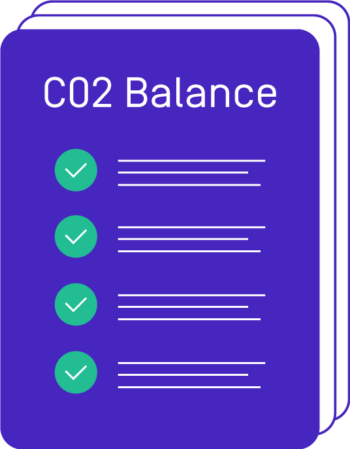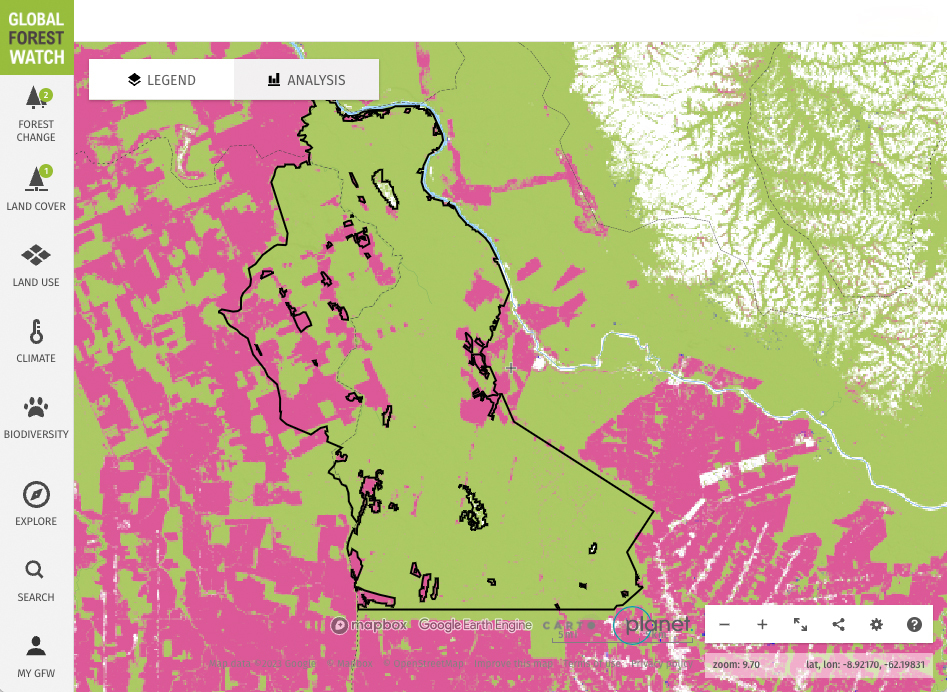Impact:
Your search queries:
Search queries of all GOOD users:
Amount generated for projects:
Current Project:
Superfood harvested from the oceanLearn more
CLIMATE-POSITIVE
Climate action is integral part of our business
Doing no harm to the environment is not enough. Businesses need to be part of the solution. We are therefore pursuing a regenerative business model that makes a positive contribution in tackling our environmental and climate crisis.
Reducing our carbon footprint
No trackers, no display of ads; we reduce data consumption to a minimum. Moreover, we do collaborate with the advertising industry which depends on resource-intense AI and machine learning to analyze search behavior while mostly promoting unsustainable consumption patterns
Double CO2 compensation
We compensate all CO2 emissions of the search across the entire value chain irrespective of the climate protection efforts of our partners. We do this even though we preferentially chose partners who themselves engage for climate action like the data center which hosts our server
Supporting social innovation across all 17 SDGs
We believe that people who drive positive change, need to be supported. We shine a light and support one change maker initiative every month, shining a light on what is possible. Many of the solutions of our impact portfolio have a powerful climate action component.
We reduce the carbon footprint of the search to a minimum
No trackers, no display of ads; we reduce data consumption to a minimum. Moreover, we do collaborate and transfer zero data to the advertising industry which would spoil the CO2-balance with their resource-intense AI and machine learning used to analyze your search behavior.
We engage for a fair, inclusive and sustainable world
We believe that a more sustainable world is possible. The ads displayed on most search engines mainly are counter productive. They give the stage to those brands which pay most, leaving those behind who share our common values and who engage for more sustainable consumption patterns. In addition, through our impact program we regularly shine a light and support initiatives which drive positive change across all 17 UN Sustainable Development Goals.
We compensate the remaining CO2 compensation beyond zero
We compensate all CO2 emissions of the search across the entire value chain irrespective of the climate protection efforts of our partners. We do this even though we preferentially work with partners who have an ambitious climate strategy themselves. Our servers, for example, are hosted carbon neutral.
Our CO2 balance: climate-positive
We calculate the CO2 emissions along the entire value chain and take a conservative approach:
- We calculate a value of 1.45g per search query, although the emissions directly attributable to a search are only 0.2g per search query according to Google’s calculations.
- Many of our partners are on a journey to net zero emissions, operate climate-neutral data centers or – as in the case of Deutsche Bahn’s long-distance travel – run their trains on green electricity. We ignore these positive impacts and calculate our CO2 footprint as if these emissions took place on our end.
Based on these rigid assumptions, we calculated total emissions since we started our first beta version in 2019 of 68 tons CO2. These are offset by climate contributions amounting to 72 tons of CO2. The innovative climate actions of our GOOD portfolio such as the solar containers from Africa Green Tec or the mobile solar kiosks in Rwanda, are not included in our analysis. We only count in externally verified contributions which can clearly be assigned to us. This way, we build in multiple buffers which ensure our climate neutrality even if one of the supported climate actions does not perform as planned.

SIDE NOTE
How CO2-intensive is a GOOD search?
A search query with GOOD requires relatively little energy. The directly attributable emissions are 0.2g. If you also include storage and indexing and apply this to the number of search queries, you can calculate up to 1.45g per search query. In contrast, streaming videos (Netflix, Instagram) or phone calls (Zoom, Teams, FaceTime etc.), for example, consume drastically more energy.

CO2 consumption depends on: Origin of electricity (water / solar/nuclear etc.), internet connection (DSL / fibre optic/mobile: UMTS, 5G etc.), characteristics of car (size, model etc.), origin and rearing of animal, method of production
CLIMATE ACTION
Rainforest conservation in the Amazon
We have offset our emissions since the launch of our beta version in 2019 till the end of 2023 by supporting rainforest conservation projects in South America. As for all other projects we engage with, a key criterion was that we engage with the projects on-site, by taking in second opinions. It’s a continuous learning journey. We will present more information about our strategy and the projects supported here shortly. The map on the right shows the outline of one of the projects, Jacundá, which develops strategies to fight illegal deforestation in the Amazon at eye-level with the local communities on-site.
The project is certified with the Community Climate and Biodiversity Standard, among others, and – unique in the Amazon – was developed together with smallholder farmer families and not with large landowners who threaten to cut down rainforest if not compensated through carbon finance.

Still got questions?
We’re excited to hear from you!

